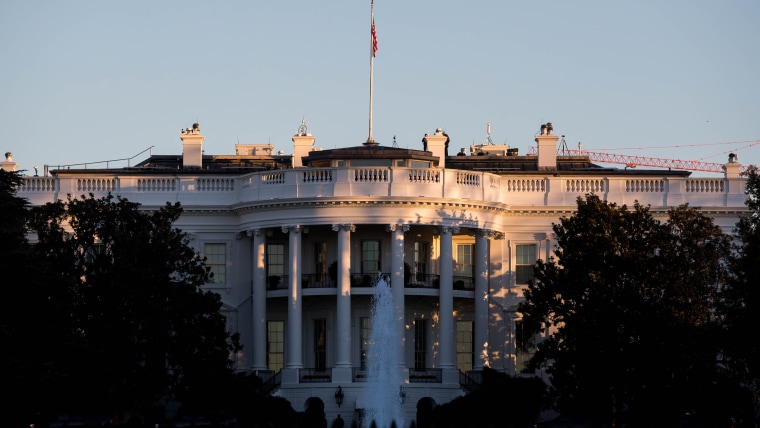A couple of weeks ago, a deputy assistant to the president in Donald Trump's White House, made a curious argument during a radio interview. The official
said Team Trump will continue to repeat its "fake news" talking point until news organizations stop "attacking" the president.The official
added, "[U]ntil the media understands how wrong that attitude is, and how it hurts their credibility, we are going to continue to say, 'fake news.' ... That's the reality."Even for Trump World, it was an odd thing to say. White House officials will keep saying "fake news," not because the news is fake, but as part of a name-calling exercise responding to coverage Trump and his aides don't like.The official was a man by the name of Sebastian Gorka -- one of several Breitbart News alum who've been hired to work in the White House -- and he's maintained
a very high media profile of late, becoming one of Trump's most notable cheerleaders and anti-media attack dogs.The
Wall Street Journal reported that Gorka, who's focused his attention for years on what he calls the "global jihadist movement," has even gained a seat at a powerful and influential table.
Mr. Gorka has now taken that view into the center of power at the White House, where he is part of the new White House Strategic Initiatives Group. He said he reports to Jared Kushner, Mr. Trump's adviser and son-in-law; Reince Priebus, the White House chief of staff; and Steve Bannon, the president's chief strategist.The Strategic Initiatives Group has been described by some U.S. officials and experts as a parallel National Security Council, writing executive orders with relatively little input from policy officials and subject matter experts.
Given Gorka's anti-Muslim attitudes, his role isn't exactly encouraging.But it was something the
Washington Post said in its profile on Gorka that stood out for me:
For years, Gorka had labored on the fringes of Washington and the far edge of acceptable debate as defined by the city's Republican and Democratic foreign policy elite. Today, the former national security editor for the conservative Breitbart News outlet occupies a senior job in the White House and his controversial ideas -- especially about Islam -- drive Trump's populist approach to counterterrorism and national security.
This notion of a political radical making the transition from "the fringes" to the White House keeps coming up for a reason.In November, for example, the
Washington Post published a
report on Jeff Sessions as "a fringe figure" for much of his career. Now, of course, he's the attorney general for the United States. As we
discussed at the time, Sessions is hardly alone: Stephen Bannon was an even more obscure fringe figure, running a right-wing website before he became the president's campaign chairman and ultimately his chief White House strategist -- even rewarded with a seat on the National Security Council.
And that's really just the start. During his congressional career, Mike Pence, for example, earned a reputation as something of a fringe crackpot, with a voting record
well to the right of House members such as Michele Bachmann, Todd Akin, and even Louie Gohmert. Pence has nevertheless been mainstreamed – and now he's one heartbeat from the presidency.Even Donald Trump himself was a fringe, clownish figure for many years, best known as the chief spokesperson for a racist conspiracy theory about President Obama. He's now the leader of the free world.The broader point is that Republican politics has been radicalized to such a ridiculous degree that practically no conservative is too extreme to play a key role in helping run the executive branch of a global superpower.I'm reminded anew of the critically important 2012 thesis from Norm Ornstein and Thomas Mann, who
famously wrote that the contemporary GOP "has become an insurgent outlier in American politics. It is ideologically extreme; scornful of compromise; unmoved by conventional understanding of facts, evidence and science; and dismissive of the legitimacy of its political opposition…. When one party moves this far from the mainstream, it makes it nearly impossible for the political system to deal constructively with the country's challenges."Thanks to this year's election results, these insurgent outliers are now running the White House. Republican radicalism was rewarded, which resulted in increased radicalism.
